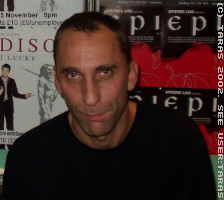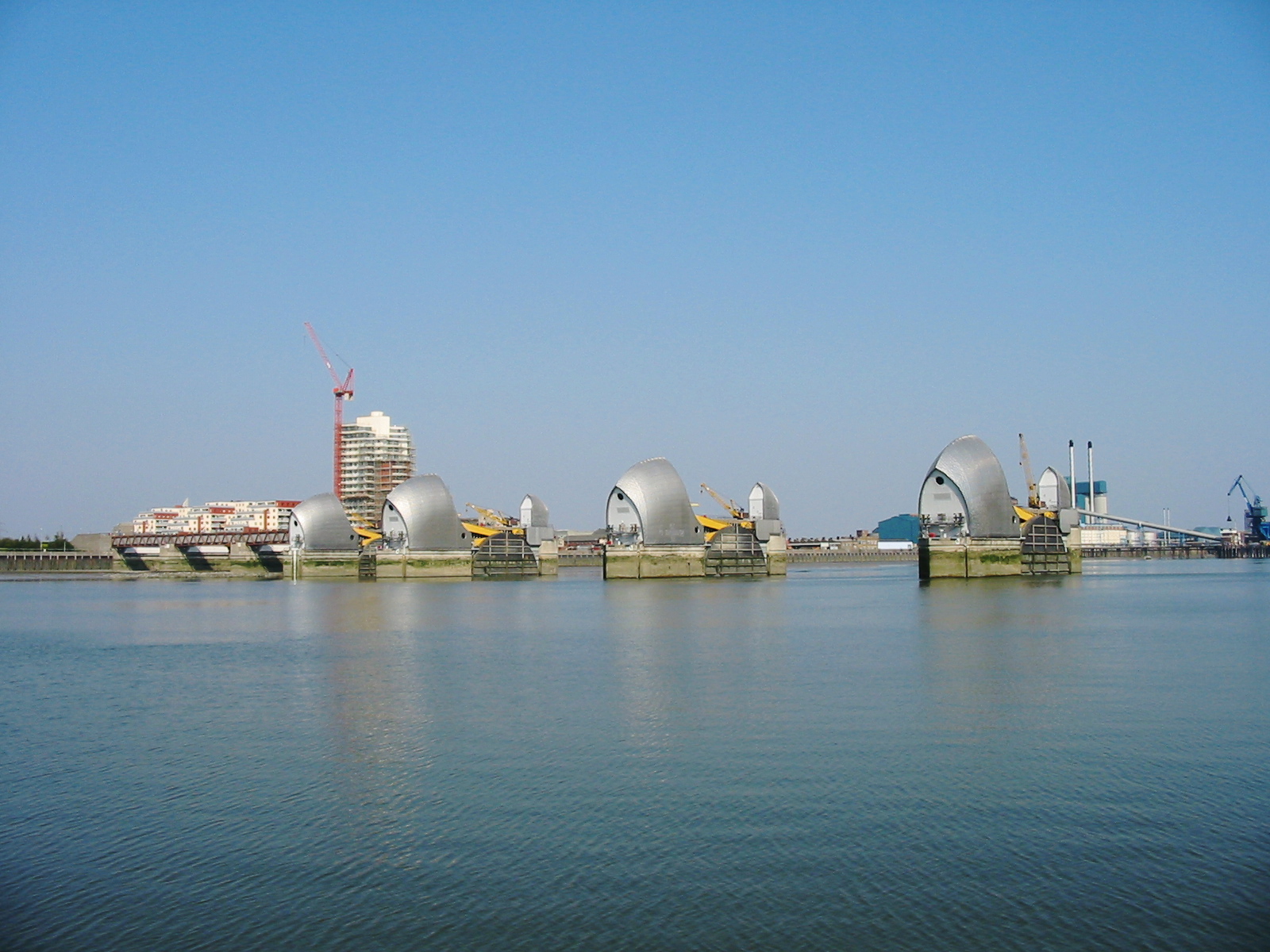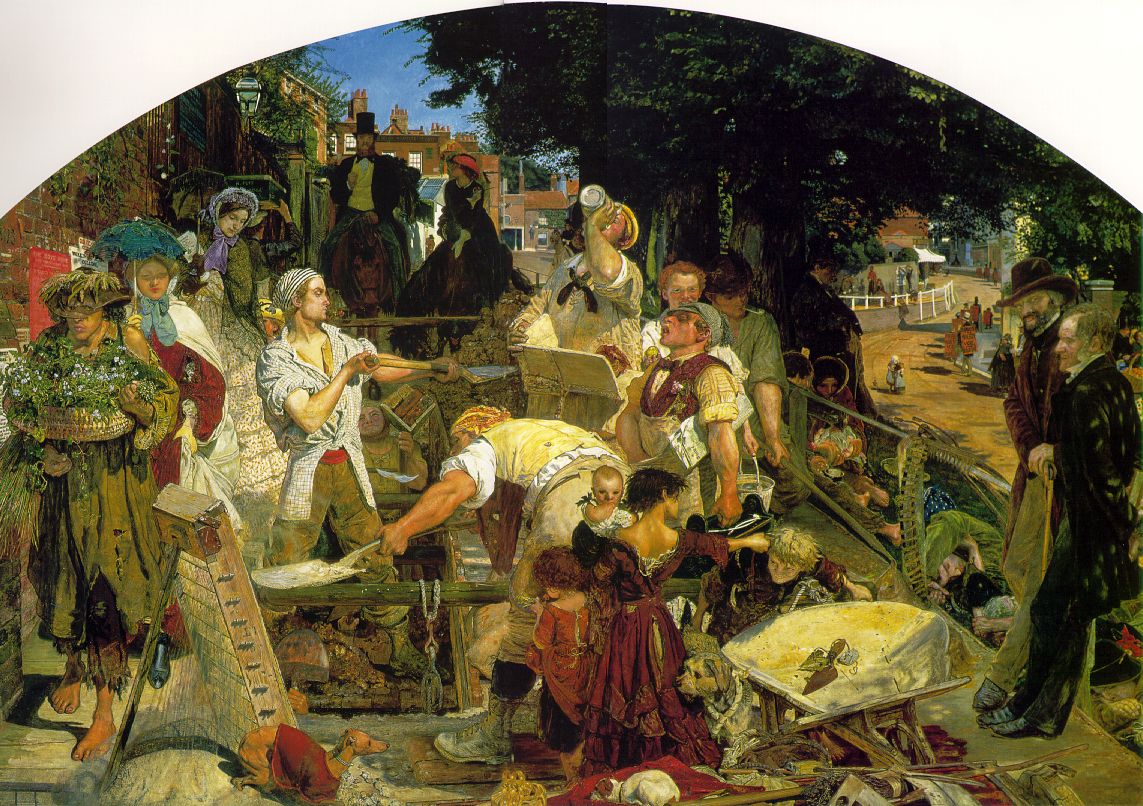|
The Book Of Dave
''The Book of Dave'' is a 2006 novel by English author Will Self. Content ''The Book of Dave'' tells the story of an angry and mentally ill London taxi driver named Dave Rudman, who writes and has printed on metal a book of his rantings against women and thoughts on custody rights for fathers. These stem from his anger with his ex-wife, Michelle, who he believes is unfairly keeping him from his son. Equally influential in Dave's book is The Knowledge—the intimate familiarity with the city of London required of its cabbies. Dave buries the book, which is discovered centuries later and used as the sacred text for a dogmatic, cruel, and misogynistic religion that takes hold in the remnants of southern England and London following catastrophic flooding. The future portions of the novel are set from 523 AD (dating from the purported discovery of the book). The book alternates between Dave's original experience and that of the future devotees of the religion inspired by his writ ... [...More Info...] [...Related Items...] OR: [Wikipedia] [Google] [Baidu] |
Will Self
William Woodard Self (born 26 September 1961) is an English writer, journalist, political commentator and broadcaster. He has written 11 novels, five collections of shorter fiction, three novellas and nine collections of non-fiction writing. Self is currently Professor, Professor of Psychogeography, Modern Thought at Brunel University London, where he teaches psychogeography. His 2002 novel ''Dorian, an Imitation'' was longlisted for the Booker Prize, and his 2012 novel ''Umbrella (novel), Umbrella'' was shortlisted. His fiction is known for being satirical, grotesque and fantastical, and is predominantly set within his home city of London. His writing often explores mental illness, drug abuse and psychiatry. Self is a regular contributor to publications including ''The Guardian'', ''Harper's Magazine'', ''The New York Times'' and the ''London Review of Books''. He has been a columnist for the ''Observer'', ''The Times'', the ''New Statesman'', the ''Evening Standard'' and ''T ... [...More Info...] [...Related Items...] OR: [Wikipedia] [Google] [Baidu] |
Thames Barrier
The Thames Barrier is a retractable barrier system built to protect the floodplain of most of Greater London from exceptionally high tides and storm surges moving up from the North Sea. It has been operational since 1982. When needed, it is closed (raised) during high tide; at low tide, it can be opened to restore the river's flow towards the sea. Built about east of the Isle of Dogs, its northern bank is in Silvertown in the London Borough of Newham and its southern bank is in the New Charlton area of the Royal Borough of Greenwich. History Background Flooding in London has been a problem since Roman times. In 1954, the Waverley Committee, established to investigate the serious North Sea flood of 1953 which affected parts of the Thames Estuary and parts of London, recommended that "as an alternative to raising the banks, the possibility and cost of erecting a structure across the Thames which could be closed in a surge should be urgently investigated". A number of designs ... [...More Info...] [...Related Items...] OR: [Wikipedia] [Google] [Baidu] |
Novels Set In London
A novel is an extended work of narrative fiction usually written in prose and published as a book. The word derives from the for 'new', 'news', or 'short story (of something new)', itself from the , a singular noun use of the neuter plural of ''novellus'', diminutive of ''novus'', meaning 'new'. According to Margaret Doody, the novel has "a continuous and comprehensive history of about two thousand years", with its origins in the Ancient Greek and Roman novel, Medieval Chivalric romance, and the tradition of the Italian Renaissance novella.Margaret Anne Doody''The True Story of the Novel'' New Brunswick, NJ: Rutgers University Press, 1996, rept. 1997, p. 1. Retrieved 25 April 2014. The ancient romance form was revived by Romanticism, in the historical romances of Walter Scott and the Gothic novel. Some novelists, including Nathaniel Hawthorne, Herman Melville, Ann Radcliffe, and John Cowper Powys, preferred the term ''romance''. Such romances should not be confused with th ... [...More Info...] [...Related Items...] OR: [Wikipedia] [Google] [Baidu] |
Dystopian Novels
A dystopia (lit. "bad place") is an imagined world or society in which people lead wretched, dehumanized, fearful lives. It is an imagined place (possibly state) in which everything is unpleasant or bad, typically a totalitarian or environmentally degraded one. Dystopia is widely seen as the opposite of utopia – a concept coined by Thomas More in 1516 to describe an ideal society. Both ''topias'' are common topics in fiction. Dystopia is also referred to as cacotopia, or anti-utopia. Dystopias are often characterized by fear or distress, tyrannical governments, environmental disaster, or other characteristics associated with a cataclysmic decline in society. Themes typical of a dystopian society include: complete control over the people in a society through the use propaganda and police state tactics, heavy censorship of information or denial of free thought, worship of an unattainable goal, the complete loss of individuality, and heavy enforcement of conformity ... [...More Info...] [...Related Items...] OR: [Wikipedia] [Google] [Baidu] |
Novels By Will Self
A novel is an extended work of narrative fiction usually written in prose and published as a book. The word derives from the for 'new', 'news', or 'short story (of something new)', itself from the , a singular noun use of the neuter plural of ''novellus'', diminutive of ''novus'', meaning 'new'. According to Margaret Doody, the novel has "a continuous and comprehensive history of about two thousand years", with its origins in the Ancient Greek and Roman novel, Medieval Chivalric romance, and the tradition of the Italian Renaissance novella.Margaret Anne Doody''The True Story of the Novel'' New Brunswick, NJ: Rutgers University Press, 1996, rept. 1997, p. 1. Retrieved 25 April 2014. The ancient romance form was revived by Romanticism, in the historical romances of Walter Scott and the Gothic novel. Some novelists, including Nathaniel Hawthorne, Herman Melville, Ann Radcliffe, and John Cowper Powys, preferred the term ''romance''. Such romances should not be confused with the ... [...More Info...] [...Related Items...] OR: [Wikipedia] [Google] [Baidu] |
British Post-apocalyptic Novels
British may refer to: Peoples, culture, and language * British people, nationals or natives of the United Kingdom, British Overseas Territories and Crown Dependencies. * British national identity, the characteristics of British people and culture * British English, the English language as spoken and written in United Kingdom of Great Britain and Northern Ireland and, more broadly, throughout the British Isles * Celtic Britons, an ancient ethno-linguistic group * Brittonic languages, a branch of the Insular Celtic language family (formerly called British) ** Common Brittonic, an ancient language Other uses *People or things associated with: ** Great Britain, an island ** British Isles, an island group ** United Kingdom, a sovereign state ** British Empire, a historical global colonial empire ** Kingdom of Great Britain (1707–1800) ** United Kingdom of Great Britain and Ireland (1801–1922) * British Raj, colonial India under the British Empire * British Hong Kong, colonial Ho ... [...More Info...] [...Related Items...] OR: [Wikipedia] [Google] [Baidu] |
Books Written In Fictional Dialects
A book is a structured presentation of recorded information, primarily verbal and graphical, through a medium. Originally physical, electronic books and audiobooks are now existent. Physical books are objects that contain printed material, mostly of writing and images. Modern books are typically composed of many pages bound together and protected by a cover, what is known as the ''codex'' format; older formats include the scroll and the tablet. As a conceptual object, a ''book'' often refers to a written work of substantial length by one or more authors, which may also be distributed digitally as an electronic book (ebook). These kinds of works can be broadly classified into fiction (containing invented content, often narratives) and non-fiction (containing content intended as factual truth). But a physical book may not contain a written work: for example, it may contain ''only'' drawings, engravings, photographs, sheet music, puzzles, or removable content like paper dolls. ... [...More Info...] [...Related Items...] OR: [Wikipedia] [Google] [Baidu] |
2006 Science Fiction Novels
6 (six) is the natural number following 5 and preceding 7. It is a composite number and the smallest perfect number. In mathematics A six-sided polygon is a hexagon, one of the three regular polygons capable of tiling the plane. A hexagon also has 6 edges as well as 6 internal and external angles. 6 is the second smallest composite number. It is also the first number that is the sum of its proper divisors, making it the smallest perfect number. It is also the only perfect number that doesn't have a digital root of 1. 6 is the first unitary perfect number, since it is the sum of its positive proper unitary divisors, without including itself. Only five such numbers are known to exist. 6 is the largest of the four all-Harshad numbers. 6 is the 2nd superior highly composite number, the 2nd colossally abundant number, the 3rd triangular number, the 4th highly composite number, a pronic number, a congruent number, a harmonic divisor number, and a semiprime. 6 is also the ... [...More Info...] [...Related Items...] OR: [Wikipedia] [Google] [Baidu] |
A Canticle For Leibowitz
''A Canticle for Leibowitz'' is a post-apocalyptic social science fiction novel by American writer Walter M. Miller Jr., first published in 1959. Set in a Catholic monastery in the desert of the southwestern United States after a devastating nuclear war, the book spans thousands of years as civilization rebuilds itself. The monks of the Albertian Order of Leibowitz preserve the surviving remnants of man's scientific knowledge until the world is again ready for it. The novel is a fix-up of three short stories Miller published in ''The Magazine of Fantasy & Science Fiction'' that were inspired by the author's participation in the bombing of the monastery at the Battle of Monte Cassino during World War II. The book is considered one of the classics of science fiction and has never been out of print. It won the 1961 Hugo Award for best science fiction novel, and its themes of religion, recurrence, and church versus state have generated a significant body of scholarly research. A ... [...More Info...] [...Related Items...] OR: [Wikipedia] [Google] [Baidu] |
Hampstead
Hampstead () is an area in London, England, which lies northwest of Charing Cross, located mainly in the London Borough of Camden, with a small part in the London Borough of Barnet. It borders Highgate and Golders Green to the north, Belsize Park to the south and is surrounded from the northeast by Hampstead Heath, a large, hilly expanse of parkland. Hampstead is known for its intellectual, artistic, liberal, and literary associations. It contains a number of listed buildings, such as Burgh House, Kenwood House, the Spaniard's Inn, and the Everyman cinema. With some of the most expensive housing in London, Hampstead has had many notable residents, both past and present, including King Constantine II of Greece and his wife Queen Anne Marie, Helena Bonham Carter, Agatha Christie, T. S. Eliot, Jon English, Sigmund Freud, Stephen Fry, Ricky Gervais, Jim Henson, George Orwell, Harry Styles and Elizabeth Taylor. As of 2004, Hampstead has been home to more Prime Mini ... [...More Info...] [...Related Items...] OR: [Wikipedia] [Google] [Baidu] |








